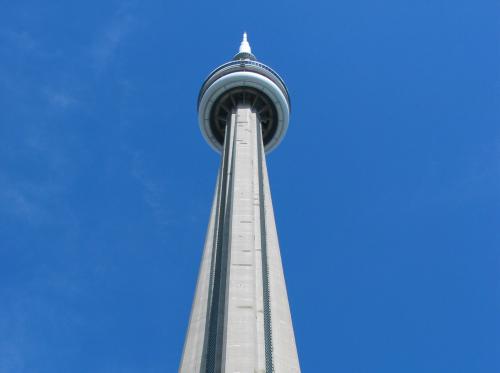This is post #34 in our series on Tafseer of Juz ‘Amma (click the link to see all posts in this series).

Continuing our discussion of Surah Balad, Allah (‘azza wa jal) says:
أَلَمْ نَجْعَل لَّهُ عَيْنَيْنِ
وَلِسَانًا وَشَفَتَيْنِ
وَهَدَيْنَاهُ النَّجْدَيْنِ
Translation: Have We not made for him two eyes? And a tongue and two lips? And have shown him the two ways?[Surah Al-Balad, verses 8-10]
The word used for ways or paths is “najd.” Najd means a clear path, one where you can see where it’s going. Upward.
Then Allah says:
فَلَا اقْتَحَمَ الْعَقَبَةَ
وَمَا أَدْرَاكَ مَا الْعَقَبَةُ
Translation: But he has not broken through the difficult pass. And what can make you know what is [breaking through] the difficult pass? [verses 10-11]
When you read verse 10, the natural question that pops into your mind is “what is this ‘aqabah, this difficult mountain pass? And verse 11 says, as we discussed very similar verses before, Allah is saying that you will never understand what al-‘Aqabah is.
And Iqtahamaa means … if you’ve ever seen Sumo wrestling, the real part is when the two wrestlers (big muscular guys) slam into each other with full power, at full force.
So Allah is giving us a clue. There’s Al-‘Aqabah, the mountain pass; and you have to iqtahamaa, climb it at full-force with no holding back. If you’ve ever had to climb tons and tons of stairs–like the CN tower (pictured above, literally thousands of stairs)–you know that to make it to the top, you need to gather your strength and rush, all at once. You don’t climb stairs one by one and stop every few steps.
That‘s iqtahamaa.
So we need to do iqtahamaa of Al-‘Aqabah. And we’ll never understand Al-‘Aqabah.
But here’s a glimpse:
فَكُّ رَقَبَةٍ
أَوْ إِطْعَامٌ فِي يَوْمٍ ذِي مَسْغَبَةٍ
يَتِيمًا ذَا مَقْرَبَةٍ
Translation: It is the freeing of a slave. Or feeding on a day of severe hunger, An orphan of near relationship. [verse 13-15]
Freeing a slave is something that’s not possible anymore; verse 14 says, feeding a poor person on a day of severe hunger. To feed someone poor when you yourself are hungry, that’s the best sadaqah you can do!
And an orphan of near kin (aka a relative of yours) is someone who has the rights of an orphan, AND the rights of near relatives; so that’s twice the rights of a regular orphan (or a regular relative).
Allah (‘azza wa jal) continues:
أَوْ مِسْكِينًا ذَا مَتْرَبَةٍ
Translation: Or a needy person in misery. [verse 16]
In the phrase “dhaa matraba,” we see in the latter word, turaab (dirt), from taraba (the verb). This eloquently describes a person out in the elements–out with the wind and the rain, with no shelter; someone homeless, clinging to the dirt out of misery.
And the final remark on Al-‘Aqabah? The last thing mentioned to do?
ثُمَّ كَانَ مِنَ الَّذِينَ آمَنُوا وَتَوَاصَوْا بِالصَّبْرِ وَتَوَاصَوْا بِالْمَرْحَمَةِ
أُولَئِكَ أَصْحَابُ الْمَيْمَنَةِ
Translation: And then being among those who believed and advised one another to patience and advised one another to compassion. Those are the companions of the right. [verses 17-18]
Nothing surprising here–a verse very similar to what we find in Surah Al-‘Asr: believe, and call to patience, and call to rahmah (mercy, compassion). These are the winners, the ones who have conquered Al-‘Aqabah, the people of the right.
Sounds difficult, right? Well, what’s the alternative?
وَالَّذِينَ كَفَرُوا بِآيَاتِنَا هُمْ أَصْحَابُ الْمَشْأَمَةِ
عَلَيْهِمْ نَارٌ مُّؤْصَدَةٌ
Translation: But they who disbelieved in Our signs – those are the companions of the left. Over them will be fire closed in. [verses 19-20]
As shaykh Muhammad Alshareef says, if a person really, truly understands Hellfire, there is no choice. Allah (‘azza wa jal) describes His fire as “mu’sadah.” Mu’sadah means that the fire will close down on you.
People often think Hellfire is like a big plain, and there will be people running around. It’s not. It’s described as dark, with chained people, and with fire that is mu’sadah–closes down on you.
May Allah (‘azza wa jal) protect us from it and help us to understand and implement this great surah.
Really, the lesson here is that social services are from the core values of Islam. Praying and fasting and paying zakah and going for Hajj are what Muslims generally think about when you talk about Islam. But it’s more than just that; it’s social services, too.
Wallahu ta’ala a’lam.
References:
- Touched by an Angel: Tafseer of Juz ‘Amma. By Muhammad Alshareef. 2009.